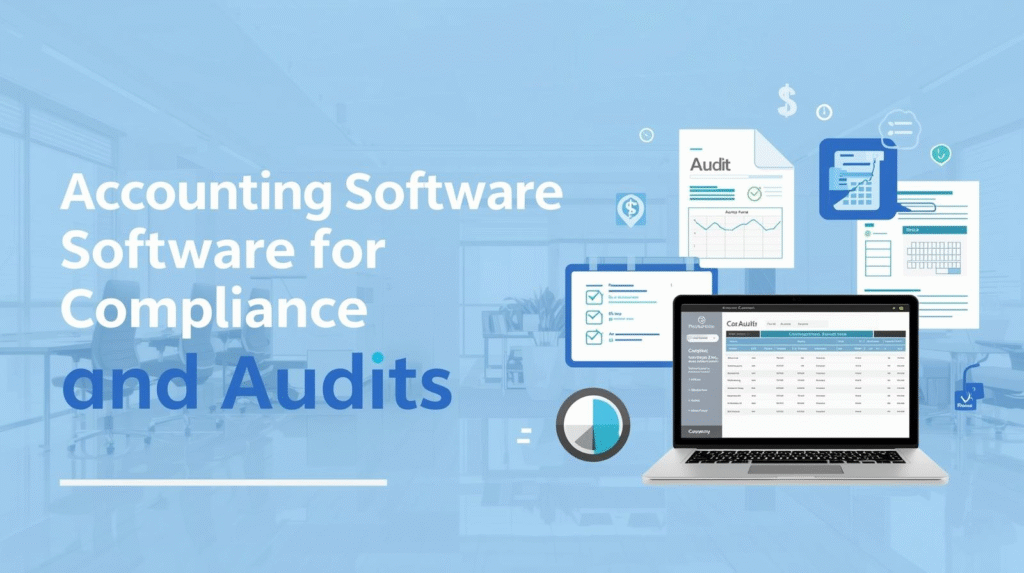
In today’s business world, regulatory compliance and audits are unavoidable realities. Whether you are a small business owner, a mid-sized enterprise, or a large corporation, ensuring financial transparency, adhering to tax regulations, and preparing for audits is critical. Traditionally, this process involved enormous manual effort, long paper trails, and the constant worry of missing a compliance deadline. But with the advancement of technology, accounting software for compliance and audits has transformed how businesses approach regulatory requirements.
Modern audit-ready accounting software helps organizations improve accuracy, streamline compliance processes, reduce financial risks, and simplify audits. In this blog, we will dive deep into how accounting software supports compliance and audits, key features to look for, benefits, and practical tips for choosing the right solution.
Compliance ensures a business follows the applicable accounting laws, tax laws, and industry-specific regulations. Non-compliance can lead to heavy fines, reputational damage, loss of investor trust, and even legal action. For example:
Audits, whether internal or external, validate the accuracy of financial information, strengthen corporate governance, and enhance stakeholder trust. Thus, using reliable compliance management and audit automation tools is no longer optional—it is essential.
Modern accounting software isn’t just about bookkeeping. It integrates compliance features that automate and monitor adherence to regulations. Here’s how:
This automation not only saves time but also ensures regulatory requirements are consistently met.
When you evaluate accounting software for compliance and audits, certain features can make all the difference:
These features ensure businesses are always “audit-ready” while maintaining compliance effortlessly.
Investing in robust accounting software for compliance and audits delivers significant advantages that go beyond reducing audit stress.
Accounting software plays a crucial role in preparing financial statements for various audits:
By aligning business processes with automated compliance workflows, accounting software dramatically reduces audit mismatches.
Selecting the right software depends on business size, industry, and regulatory environment. Here are key considerations:
While software simplifies the process, businesses must follow best practices to ensure maximum compliance:
The future of audit-ready accounting tools looks promising with the integration of artificial intelligence (AI) and machine learning (ML). Predictive analytics will help businesses anticipate compliance risks, while AI-driven automation will reduce manual intervention even further. Blockchain technology may soon ensure tamper-proof audit trails and absolute transparency. Cloud-based compliance solutions will continue to dominate, offering global access and real-time regulations tracking.
Compliance and audits are often seen as stressful, but with the right accounting software for compliance and audits, businesses can easily maintain transparency, reduce risks, and stay audit-ready throughout the year. From automated tax reporting to maintaining detailed audit trails, these tools save time, improve accuracy, and provide businesses with peace of mind.
If your business still relies on manual processes for compliance, it’s time to consider switching to modern compliance management and audit automation solutions. Not only will it strengthen governance and reduce audit preparation hassles, but it will also empower your finance team to focus on growth and strategic decision-making.

4.9 google Reviews
Lorem ipsum dolor sit amet, consectetur adipiscing elit. Ut elit tellus, luctus nec ullamcorper mattis, pulvinar dapibus leo.